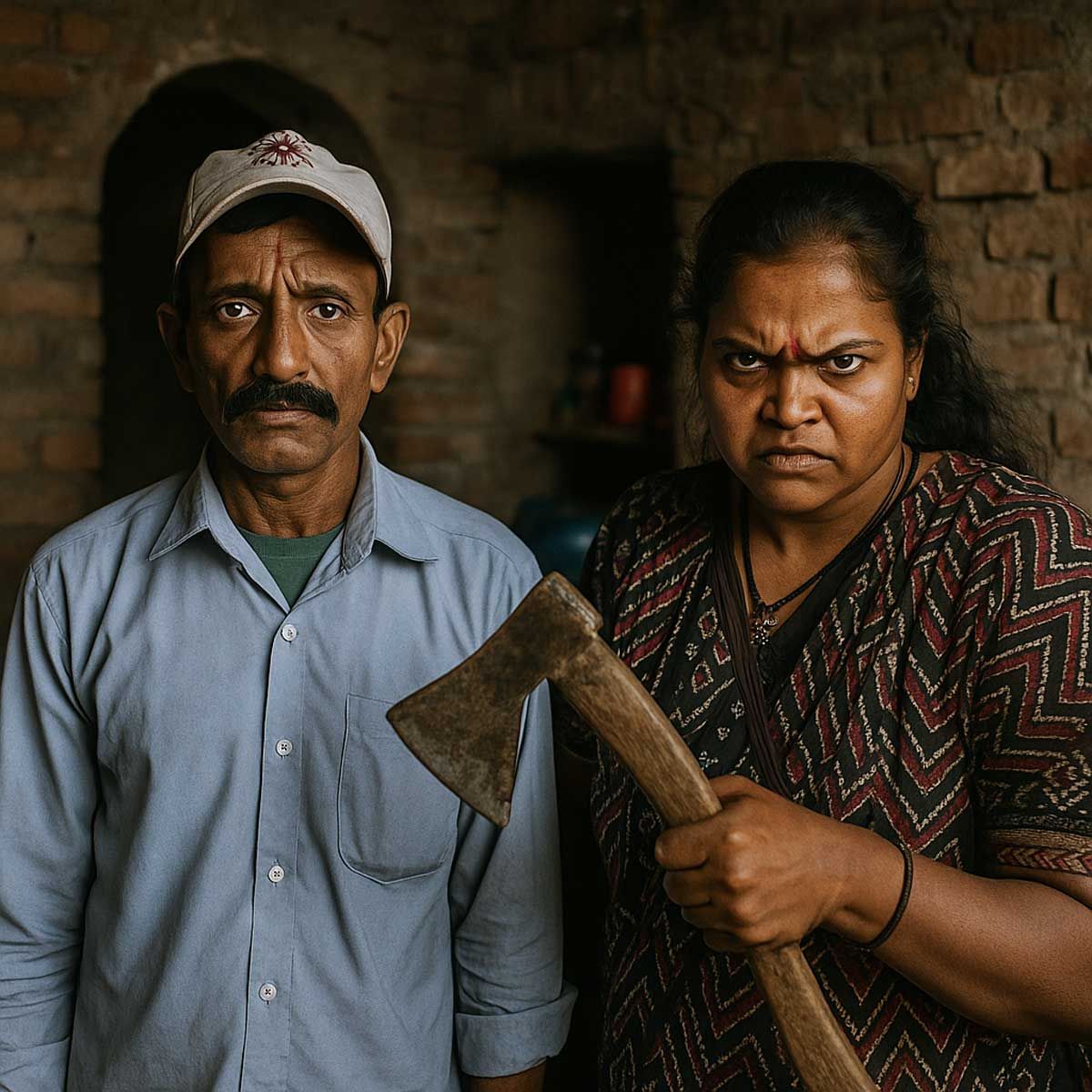More Coverage
Twitter Coverage
Satyaagrah
Written on
Satyaagrah
Written on
Satyaagrah
Written on
Satyaagrah
Written on
Satyaagrah
Written on
JOIN SATYAAGRAH SOCIAL MEDIA
Amit Shah announces transformative shifts in India's criminal laws, aiming to eradicate colonial legacies and emphasize justice over punishment, with tech integration & comprehensive consultations, Shah envisions an efficient, citizen-centric legal system

In a defining move towards reshaping the country's legal framework, Union Home Minister Amit Shah recently shed light on the primary motive behind the proposed changes to India's criminal laws. Speaking on Sunday, he underscored the need for a fresh, modern perspective that does away with the colonial-era remnants that have clung to the system for close to a century and a half.
|
During his address, Shah emphasized, "The old laws were to strengthen the English rule...to ensure they could rule well. They intended to punish, not ensure justice. The new laws don't intend to punish, they intend to ensure justice." Such a statement reaffirms the government's commitment to reimagining a justice system that is robust and fair.
Further elaborating on the three new laws set to reshape the criminal justice landscape, Shah clarified that their objective isn't centered around penal actions but is fundamentally focused on ensuring justice for every citizen.
This notable announcement came at the valedictory session of the International Lawyers' Conference, an event organized by the esteemed Bar Council of India (BCI) over the weekend. Shah's message was crystal clear: The impending transformation of the criminal law system is driven by the ideals of justice and not punishment, echoing a new era for India's legal proceedings.
 |
| तीन प्रस्तावित आपराधिक कानून सजा के बजाय न्याय करने पर केंद्रित : शाह |
In a remarkable stride towards modernizing the Indian legal system, the Central government, during the Parliament's monsoon session, rolled out three transformative bills. These bills aim to supplant some of the longstanding pillars of Indian legal code, namely the Indian Penal Code (IPC) of 1860, the Code of Criminal Procedure (CrPC) of 1973, and the Indian Evidence Act of 1872.
The IPC, originally established during the British Raj in 1860, is set to be succeeded by the Bharatiya Nyaya Sanhita, 2023. Similarly, the CrPC of 1973 is on the roadmap to be substituted by the Bharatiya Nagarik Suraksha Sanhita, 2023. Not stopping there, the Indian Evidence Act of 1872 will be supplanted by the Bharatiya Sakshya Bill, 2023.
|
Highlighting the transformative vision even further, Shah introduced three pivotal administrative initiatives:
- e-courts phase 3: Promising a digital leap for the judiciary.
- Inter-operable Criminal Justice System (ICJS): Envisioning seamless interactivity between the various arms of the justice system.
- Technology integration in law: Bridging the gap between technology and legal proceedings to make the system more efficient.
Shah exuded confidence in his announcement, assuring that the culmination of these newly proposed laws and the innovative initiatives will herald the end of prolonged pendency in the criminal justice system. In essence, the harmonization of these efforts paints a picture of a future where justice is not only swift but also more aligned with the contemporary needs and aspirations of the Indian populace.
Union Home Minister Amit Shah, building on his prior announcements, elucidated on the proposed modifications to the criminal justice system, emphasizing the administrative milestones envisaged to overhaul the ecosystem. With the introduction of e-courts phase 3, the Inter-operable Criminal Justice System (ICJS), and the integration of modern technology into the CrPC, IPC, and Evidence Act, the Indian legal framework is poised to witness a digital and procedural renaissance.
Shah's pledge to the nation was clear and firm: "By synergizing these groundbreaking laws and pioneering initiatives, I assure you, we'll eradicate the backlog in our criminal justice system within the next ten years."
One revolutionary provision introduced within the proposed criminal statutes centers on the extension of summary trials. Specifically, Shah pinpointed that the remodeled legal framework will pave the way for summary trials in instances where the envisaged punishment doesn't surpass a tenure of three years. This is a strategic move to expedite less severe cases, ensuring swifter justice without compromising the quality of judgments.
But the reforms don't stop there.
 |
| Here are the major reforms |
In a bid to combat procedural delays that have historically plagued the system, the new laws impose stringent timelines on law enforcement agencies and judicial entities alike. The police will now be obligated to present their challan to the respective court within a mere seven days post the initial hearing. Furthermore, the conclusion of any investigation will be mandated within a tight 90-day window following the filing of a chargesheet. Shah also underscored a pivotal directive that judgments, once reserved, must be pronounced without delay, specifically within a span of 30 days.
These pronounced changes, with their razor-sharp focus on timeliness and efficiency, not only signal India's commitment to reforming its criminal justice system but also reflect the nation's dedication to upholding the principle that justice delayed is justice denied.
Union Home Minister Amit Shah, in his final remarks, underscored the dynamic journey ahead in the transformation of India's criminal justice system. Recognizing the strides taken, he advocated for the rapid integration of technology with the introduction of e-prosecution, e-presence, e-forensics, and e-courts. Such advancements promise not just streamlined processes, but also a profound commitment to a citizen-centric approach, bridging the gaps between legal entities and the people they serve.
Drawing attention to the collective nature of this endeavour, Shah extended an open invitation to the pillars of India's legal fraternity. He passionately conveyed, "I urge all lawyers nationwide to deeply review these monumental legal shifts and grace us with their invaluable feedback." Reiterating the significance of ground-level insights, Shah emphasized that the experiential knowledge lawyers possess regarding the system's daily hurdles is vital for the successful rollout of these reforms.
Reflecting on the meticulous groundwork that has been the bedrock of these proposed laws, Shah, during his address to the Lok Sabha earlier this year, revealed the collaborative nature of this monumental task. He remarked that the journey of sculpting these laws wasn't undertaken in isolation but was a symphony of diverse opinions and expertise. It spanned consultations with 18 States, 7 Union Territories, esteemed judges from both the Supreme Court and High Courts, 22 premier law universities, 142 Parliament Members, 270 Members of the Legislative Assembly, and numerous engaged citizens.
These extensive deliberations, spread across a staggering 158 meetings over four years, manifest the country's unwavering commitment to collective progress, ensuring every voice is heard, every perspective considered, and every concern addressed.
In wrapping up, the journey ahead for India's criminal justice system, bolstered by these reforms, is not just about swift legal procedures. It's a clarion call for collective evolution, ensuring that the scales of justice balance efficiency with empathy, progress with participation, and innovation with inclusion.
 Support Us
Support Us
Satyagraha was born from the heart of our land, with an undying aim to unveil the true essence of Bharat. It seeks to illuminate the hidden tales of our valiant freedom fighters and the rich chronicles that haven't yet sung their complete melody in the mainstream.
While platforms like NDTV and 'The Wire' effortlessly garner funds under the banner of safeguarding democracy, we at Satyagraha walk a different path. Our strength and resonance come from you. In this journey to weave a stronger Bharat, every little contribution amplifies our voice. Let's come together, contribute as you can, and champion the true spirit of our nation.
 |  |  |
| ICICI Bank of Satyaagrah | Razorpay Bank of Satyaagrah | PayPal Bank of Satyaagrah - For International Payments |
If all above doesn't work, then try the LINK below:
Please share the article on other platforms
DISCLAIMER: The author is solely responsible for the views expressed in this article. The author carries the responsibility for citing and/or licensing of images utilized within the text. The website also frequently uses non-commercial images for representational purposes only in line with the article. We are not responsible for the authenticity of such images. If some images have a copyright issue, we request the person/entity to contact us at This email address is being protected from spambots. You need JavaScript enabled to view it. and we will take the necessary actions to resolve the issue.
Related Articles
- "No man is ever as anti-feminist as a really feminine woman": A bench of Justices DY Chandrachud and Hima Kohli noted that income tax returns do not necessarily furnish an accurate guide of the real income of parties in matrimonial disputes: Supreme Court
- "We are all born gifted. That is our true inheritance": Supreme Court observes that female tribal is entitled to parity with male tribal in intestate succession, says "Not to grant benefit of 'Survivorship to daughter in father's property' is bad Law"
- "Excessively harsh": Centre opposes criminalizing marital rape, citing existing laws like Sections 354, 354A, 354B, 498A IPC, and the Domestic Violence Act, 2005, already offer serious penal consequences for violations of consent within marriage
- Supreme Court refused to suspend Sanjiv Bhatt’s life sentence in the 1990 custodial death case of Prabhudas Vaishnani, ordering swift appeal hearing while firmly rejecting bail citing custodial torture allegations and Bhatt’s drug planting conviction
- “Words have no wings but they can fly a thousand miles“: Justice Ajay Rastogi - "If You decide against the Govt, You will be labeled as an independent judge, if you make a comment against the Govt, everyone including media is happy; this should change"
- "Spirit of truth and the spirit of freedom-they are the pillars of society": Social media today has become a powerful medium for exchange of views, expressing opinions and thus has become important pillars on which our democracy stands: Bombay High Court
- Notice issued to Central govt on plea challenging the constitutional validity of Waqf Act 1995 by Delhi High Court: Ashwini Upadhyay filed the plea that Waqf Act is antithetical to Secularism in India
- Calcutta High Court's landmark judgment illuminates the secular essence of Durga Puja, reinforcing citizens' constitutional rights and India's unity in diversity, a celebration beyond religion, it embodies vibrant spirit of communal harmony & tradition
- "कृष्णलला हम आयेंगे": Allahabad High Court delivers a historic verdict favoring Hindu devotees in the Krishna Janmabhoomi case, dismissing the Muslim side’s plea and affirming the legal standing of Hindu claims under key acts, marking a judicial milestone
- A fire, burnt cash, and a judge under suspicion—yet the Supreme Court refuses an FIR against Justice Yashwant Varma, asking petitioners to first write to the President and PM, shielding its own while justice quietly exits the courtroom, unheard and unseen
- "An error doesn't become a mistake until you refuse to correct it": Supreme Court dismissed a plea seeking the opening of secret rooms of Taj Mahal to put to rest the "alleged history" of monument including claims that it was a Shiva temple, Tejo Mahalaya
- "She should have gone to the TV and apologized to the nation": Supreme Court lambasted Nupur Sharma for her comments on Prophet Mohammed, said "This lady is single-handedly responsible for what is happening in the country"
- "Waqf Act is against secularism, unity, and integrity of the nation; Waqf is not mentioned anywhere in the Constitution" says Ashwini Upadhyay: Filed PIL in Delhi HC challenging provisions of Waqf Act
- "Get your facts first, then you can distort them as you please": SC grants bail to life convict Farooq who pelted stone at burning Godhra Train in 2002 & prevented Hindus inside train from escaping from fire, CJI Chandrachud ~ "It has been 17 long years"
- "Every sinner has a future": In the labyrinth of justice, where Chandrakant Jha, with 18 murders, finds another chance at parole, it begs the question: Is redemption possible for everyone, or are some paths too dark to ever find the light again




























